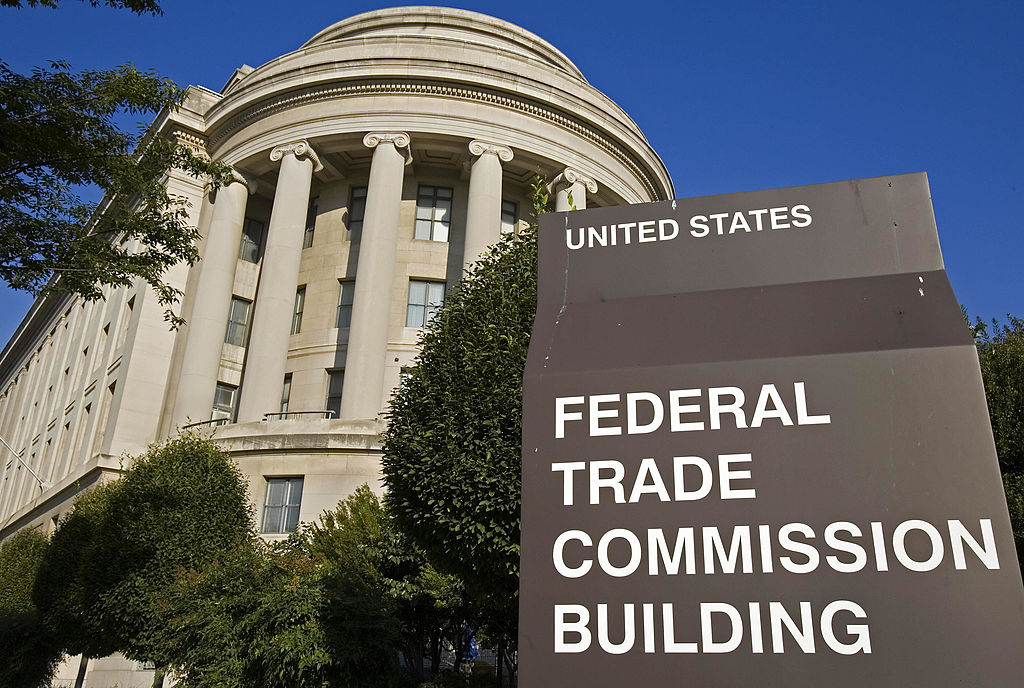FTC Rescinds Antitrust Enforcement Guidance
Signals it will flex Sec. 5 muscle

The smarter way to stay on top of the multichannel video marketplace. Sign up below.
You are now subscribed
Your newsletter sign-up was successful
The Federal Trade Commission has signaled it is rethinking its enforcement principles regarding its Sec. 5 authority to prevent unfair methods of competition, saying under the current FTC guidance, the commission "has doubled down on the Commission's longstanding failure to investigate and pursue 'unfair methods of competition.'"
In a 3-2 vote along partisan lines, the Democratic majority of commissioners rescinded an Obama era (2015) bipartisan policy statement on its antitrust enforcement.
"[T]he 2015 Statement abrogates the Commission’s congressionally mandated duty to use its expertise to identify and combat unfair methods of competition even if they do not violate a separate antitrust statute," the majority statement read. "Accordingly, because the Commission intends to restore the agency to this critical mission, the agency withdraws the 2015 Statement."
Also Read: FTC Competition Guidance Draws Crowd
In the 2015 statement, the FTC said that, using a "consumer welfare" standard, it would only challenge actions that cause or are likely to cause harm to competition, "taking into account any associated cognizable efficiencies and business justifications."
The 2015 statement also said the commission would be less likely to individually challenge an act or practice as unfair competition if it concluded that "enforcement of the Sherman or Clayton Act is sufficient to address the competitive harm arising from the act or practice."
Republican commissioner Christine Wilson explained her dissent.
The smarter way to stay on top of the multichannel video marketplace. Sign up below.
"I've said before that what you measure is what you get," Wilson said. "If the Commission is no longer measuring consumer welfare, then by definition, consumers will be harmed by the Commission's change of direction to prioritize other interests. Consumers will face higher prices, less innovation and reductions in quality because, contrary to popular assertions, the consumer welfare standard takes into account price, quality, and innovation."
Republican commissioner Noah Joshua Phillips was equally unhappy. "The Majority’s decision today to rescind the Commission’s bipartisan 2015 Section 5 Policy Statement reduces clarity in the application of the law and augurs an attempt to arrogate terrific regulatory power never intended by Congress to a handful of unelected individuals on the FTC," he said.
He also complained that the vote came only a week after it was announced, "the bare minimum notice permitted by law [and] diminishing the public’s opportunity to give input."
A group of legal experts led by Ashley Baker of the Committee for Justice and Daren Bakst of The Heritage Foundation, agreed with Phillips. "[W]e are concerned that the sudden rush to revoke the 2015 statement foreshadows a broader agenda to radically change antitrust law by greatly expanding the FTC’s enforcement discretion," they said.
Given the pressure on the FTC to crack down on Big Tech, and the history of its new chair, Lina Khan, advocating for that get-tough policy, tech groups were not pleased with the change in policy.
“We are sad to see the FTC move forward with a party-line vote to rescind the Obama-era competition policy statement," said Consumer Technology Association president Gary Shapiro. "This seems to be the first step in moving competition policy away from the consumer welfare standard, which for years has enabled U.S. world-leading innovation by focusing on what is best for consumers rather than legacy businesses using government to protect them from new entrants and innovators. The consumer welfare standard grounds competition policy in objective facts and evidence. By protecting consumers rather than competitors, we ensure antitrust decisions are not subjective or political."
"The FTC’s hasty decision to abandon the consumer welfare standard – especially as we face unprecedented global competition in the tech sector and beyond – is a grave mistake," Shapiro said.
"Today’s partisan decision to get rid of the bipartisan framework adopted in 2015 risks undermining competition enforcement, and represents a step backwards for the future of the FTC as an enforcement agency," said Computer & Communications Industry Association president Matt Schruers.
Contributing editor John Eggerton has been an editor and/or writer on media regulation, legislation and policy for over four decades, including covering the FCC, FTC, Congress, the major media trade associations, and the federal courts. In addition to Multichannel News and Broadcasting + Cable, his work has appeared in Radio World, TV Technology, TV Fax, This Week in Consumer Electronics, Variety and the Encyclopedia Britannica.

